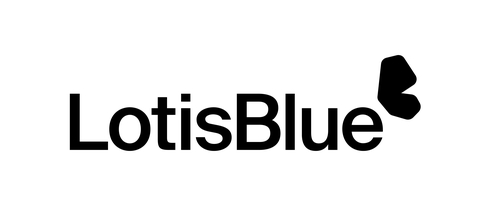Lotis Blue Consulting Releases The Science of Staying: 2025 Health Care Workforce Retention Study - New Research Can Predict Turnover with 90% Accuracy
Lotis Blue Consulting Releases The Science of Staying: 2025 Health Care Workforce Retention Study - New Research Can Predict Turnover with 90% Accuracy
New insights serve as a call to action for health care organizations to address turnover concerns through a data-driven approach to the Employee Value Proposition.
CHICAGO--(BUSINESS WIRE)--Lotis Blue Consulting, a leading firm specializing in data-driven talent and organization solutions, has released The Science of Staying: 2025 Health Care Workforce Retention Study. This leading-edge research in health care explores the psychological drivers behind clinical professionals’ decisions to stay, consider leaving, or quit their jobs. The study analyzes data from more than 1,000 clinical health care professionals representing more than 400 health care organizations to assess the key drivers behind these workforce decisions.
It is critical for health care organizations to acknowledge that employees stay or quit for entirely different reasons. Employers need to simultaneously optimize factors that drive retention while mitigating the factors that repel talent & drive turnover.
Share
Lotis Blue’s proprietary research methodology provides objective and actionable insights through independent polling. This approach focuses on real-time employee decisions about whether to stay at or leave their jobs through the lens of the Employee Value Proposition (EVP) by exploring the influence of 33 factors of an employer’s “offering.”
"Health care organizations are under intense pressure to address rising turnover rates and the ongoing labor shortage, particularly as shifting attitudes toward work continue to impact workforce dynamics," said Erica Grant, partner at Lotis Blue Consulting and co-author of the study.
These findings reinforce the power of an optimized EVP in improving attraction and retention. Lotis Blue’s machine learning model can predict—with 90% accuracy—whether an employee will quit or stay based solely on attitudes toward the various factors of the EVP. While all factors of the EVP matter, some are more influential than others on the decision to stay or leave, with 60% of the influence of all stay-or-leave decisions being driven by factors associated with the organization (job stability and location), shift preferences, and physical and mental job demands.
Key findings from the study include:
- 19% of respondents reported quitting a job in the past 12 months. However, turnover rates are notably higher among those who had been with their employer for less than a year, with 45% of them having quit.
- Among those who had quit, 47% were driven by job-related factors, suggesting a significant opportunity for employers to improve controllable elements of the EVP to reduce turnover.
- The reasons for staying in a job and quitting a job are entirely unique; however, some factors serve as triggers, pushing employees from considering leaving to the decision to quit.
- “Feeling the work is meaningful” is the top reason clinical professionals choose to stay and cite additional factors that support feelings of safety, stability, and community as critically important.
- “Emotional stress” is the top reason for quitting and also a driver of considering leaving, making it the only factor predictive of more than one outcome.
- Factors often expected to drive quit decisions, such as liking one’s immediate supervisor, were notably absent from the results.
“It is critical for health care organizations to acknowledge that employees stay and quit for entirely different reasons. Employers need to simultaneously optimize the factors that drive retention while mitigating the unique factors that repel talent and drive turnover,” said Aaron Sorensen, a partner at Lotis Blue and co-author of the study.
The research highlights key differences in preferences across workforce characteristics such as role, tenure, hours worked, and the type of health care setting that must be considered as part of the EVP. These differences are especially critical as health care organizations prepare for anticipated nursing shortages and upcoming waves of retirement.
“While the market for health care talent is becoming increasingly complex, leveraging data can help organizations be more confident that targeted improvements to the EVP will deliver sustained results,” Sorensen added.
Find the full report at The Science of Staying: 2025 Health Care Workforce Retention Study.
About Lotis Blue Consulting
Lotis Blue is committed to helping organizations forge strong connections between business strategy, people, and organizational capabilities to execute effectively. With deep expertise in data and behavioral science, we deliver insight-driven solutions tailored to each client’s unique challenges. For more information on Lotis Blue Consulting, please visit www.lotisblueconsulting.com.
Contacts
Becky Lorentz
SullivanCotter
beckylorentz@sullivancotter.com
314.414.3719
Jenni Bowring
Padilla
jenni.bowring@padillaco.com
651.226.3858

